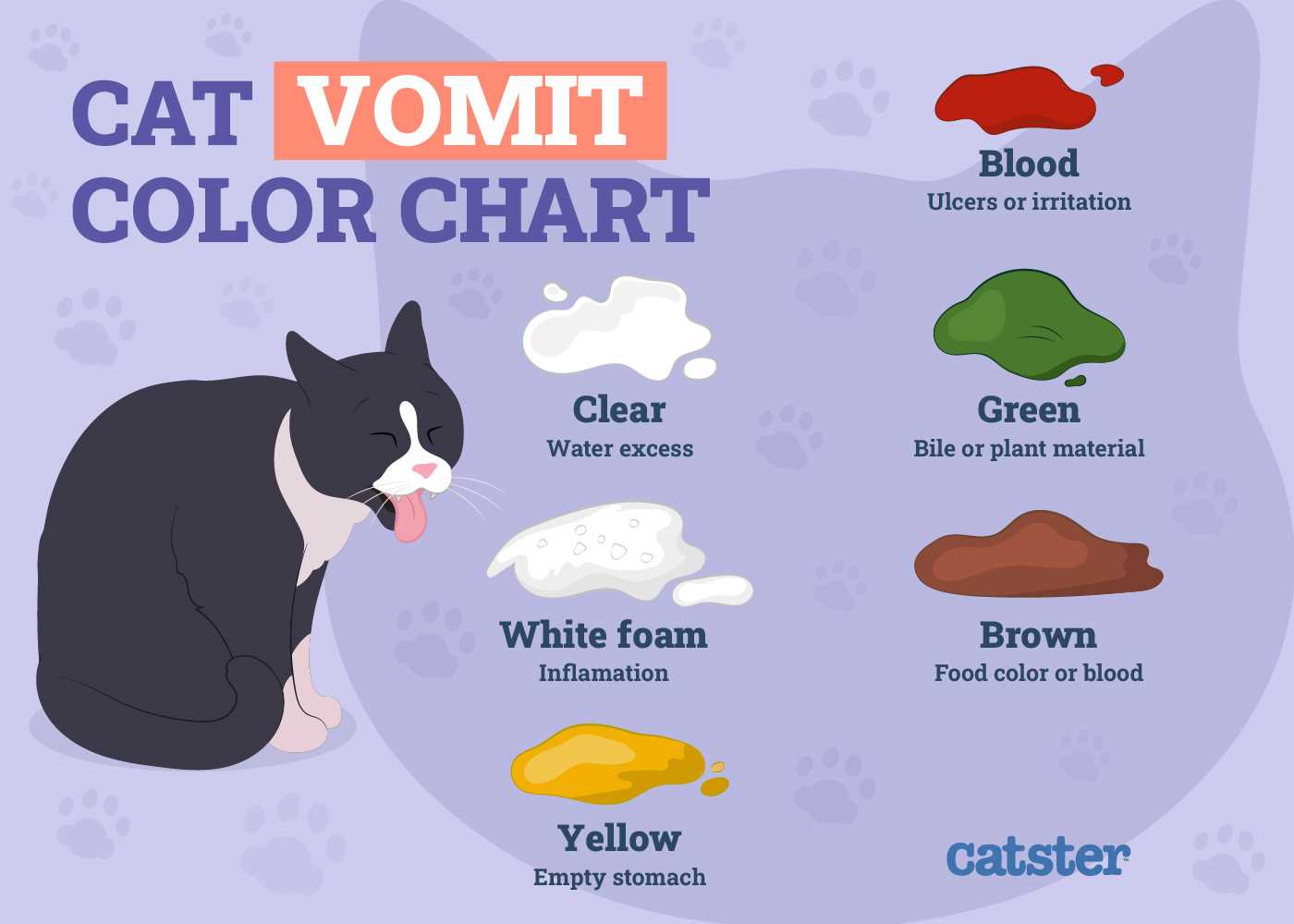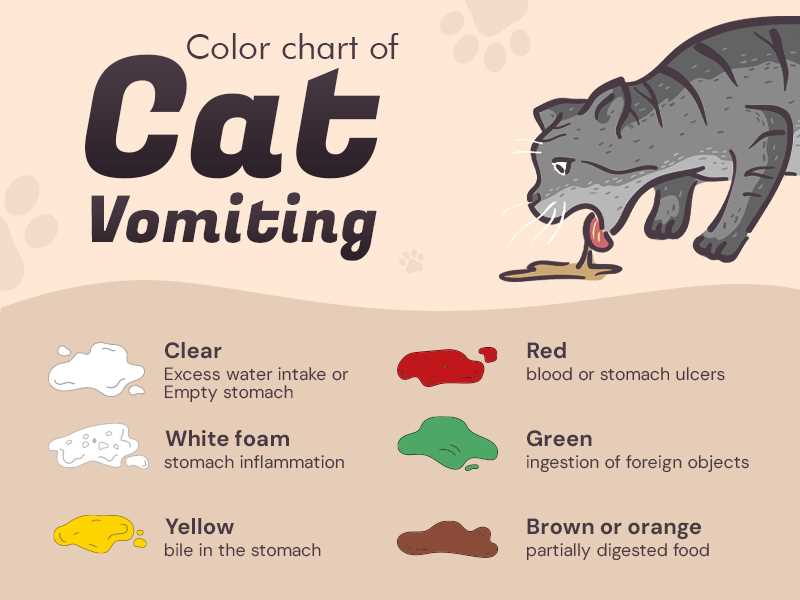



When nausea strikes, a simple solution is to provide a bland diet. Boiled chicken or rice can help soothe an upset stomach while ensuring easy digestion. Serving this in small portions is key; it allows for gradual intake without overwhelming the digestive system.
Hydration matters too. Fresh water must always be accessible, as vomiting can lead to dehydration. If drinking is troublesome, offering ice chips or a small amount of low-sodium broth might encourage fluid intake.
Incorporating a specialized diet designed for sensitive stomachs can also be beneficial. Consult with a veterinarian for recommendations tailored to specific needs and conditions. Regular monitoring of symptoms will guide further decisions and adjustments.
Suggestions for a Sick Feline
Warm water is a good option. Hydration helps maintain health and can alleviate discomfort. Provide small amounts frequently. If my tummy feels uneasy, I might appreciate a little plain boiled chicken without skin or seasoning. It’s gentle on the stomach and easy to digest.
Considerations for Nutrition
Plain rice mixed with chicken can also be soothing. This combination is usually well-tolerated. Avoid dairy products; many of us lack the enzyme needed to digest lactose properly, leading to further upset. Small servings are best; too much at once can worsen the situation.
Observing Behavior
Monitor any changes in energy or mood. If I’m still active and curious, that’s a good sign. If lethargy or persistent vomiting occurs, it’s time to consult a veterinarian. They can provide specific advice tailored to individual needs and health conditions.
Identifying the Causes of Vomiting in Cats
Understanding the reasons behind regurgitation is crucial for addressing health concerns. Here are common culprits to consider:
- Dietary Issues: Sudden changes in food, intolerances, or allergies can lead to upset stomachs.
- Hairballs: Frequent grooming can result in hairballs, which often cause vomiting.
- Ingesting Foreign Objects: Cats are curious. Swallowing toys or strings can trigger vomiting as the body attempts to expel them.
- Illnesses: Conditions such as pancreatitis, kidney disease, or infections might manifest through vomiting.
- Parasites: Internal parasites can irritate the stomach lining, leading to vomiting episodes.
- Stress: Environmental changes, such as moving to a new home, can upset felines and result in gastrointestinal distress.
Monitoring Symptoms
Pay attention to accompanying signs like lethargy, diarrhea, or changes in appetite. These details are vital for identifying serious health issues.
Seeking Veterinary Help

If vomiting persists beyond a day or two, or if other concerning symptoms arise, consulting a veterinarian is advisable. Early intervention can prevent complications.
Immediate Solutions to Calm an Upset Stomach
If my tummy feels off, a few quick remedies can help ease the discomfort. First, try offering plain, cooked chicken or turkey, without any seasoning. This protein source is gentle and easy to digest.
Next, consider introducing a small amount of pumpkin puree. This natural fiber can assist in regulating digestion and soothing irritation.
Hydration is key. Ensure access to fresh water at all times, but if drinking seems difficult, ice chips can be a fun alternative. They provide hydration while being less overwhelming for a sensitive stomach.
Rest is another important factor. Creating a cozy, quiet space allows for relaxation and recovery. Soft blankets or a favorite spot can make a big difference.
For those moments of distress, a gentle belly rub might provide comfort. Just be sure to approach cautiously, as some areas may be sensitive.
If vomiting persists or worsens, seeking veterinary advice is crucial. A professional can diagnose any underlying issues and recommend appropriate treatment.
Appropriate Hydration Strategies for Vomiting Cats

Water is paramount for recovery. Offer fresh, clean water frequently throughout the day. If drinking seems difficult, try a shallow dish to encourage sipping. Some cats prefer running water, so consider a pet water fountain to attract their interest.
Electrolyte Solutions
Incorporating electrolyte solutions designed for pets can help maintain hydration levels. Look for products that are specifically formulated for felines. Follow dosage instructions closely to avoid any adverse effects.
Broth and Wet Food
Low-sodium chicken or beef broth serves as an appealing alternative to plain water. Ensure the broth lacks onions or garlic, which are toxic. Additionally, offering wet food can provide hydration while also delivering necessary nutrients. Choose a high-quality brand with moisture content to support recovery.
Safe Dietary Options to Consider
When feeling unwell, plain boiled chicken or turkey can be beneficial. Shredded pieces ensure easy digestion and provide necessary protein without unnecessary additives.
Rice is another gentle option. Mixing small amounts of plain, cooked white rice with protein can help settle a sensitive stomach.
Consider incorporating pumpkin puree, which is high in fiber. It aids digestion and can help regulate bowel movements. Just ensure it’s pure pumpkin, free from added sugars or spices.
Low-fat cottage cheese serves as a protein source while being easy on the tummy. Introduce it gradually to observe tolerance levels.
For those needing extra hydration, plain chicken or beef broth can stimulate appetite and provide fluids. Avoid onion or garlic, which are toxic to felines.
Consulting a vet before making changes is always wise. Each furry friend has unique needs, and professional advice ensures a tailored approach.
Additionally, for joint support, consider checking out the best cosequin for cats.
While focusing on dietary changes, keep the environment calm and stress-free. A quiet space helps promote recovery.
For cleaning up after any mess, remember that choosing the right tools is crucial. If you need a cleaner for home maintenance, check the best pressure washer cleaner for aluminum siding.
When to Consult a Veterinarian for Vomiting Issues
If vomiting persists for more than 24 hours, immediate veterinary assistance is essential. Other red flags include the presence of blood in the vomit, lethargy, diarrhea, or signs of dehydration. If there is a sudden change in behavior or appetite, this warrants a check-up as well.
Age and health history play significant roles. Kittens and senior felines are more vulnerable, and any ongoing medical conditions can increase the urgency of a visit. If there’s a known exposure to toxins or if your furry friend has ingested something potentially harmful, seek help right away.
Monitor weight closely; unintentional weight loss over a few days suggests a serious issue. If vomiting occurs after a diet change or new treats, a veterinarian’s opinion is crucial to rule out allergies or intolerances.
| Symptoms | Action |
|---|---|
| Vomiting for 24+ hours | Visit the vet |
| Blood in vomit | Immediate veterinary care |
| Lethargy or weakness | Consult a veterinarian |
| Diarrhea accompanying vomiting | Schedule a vet appointment |
| Signs of dehydration (dry gums, skin tenting) | Seek veterinary help |
| Sudden behavioral or appetite changes | Check with a vet |
Timely intervention can prevent serious complications, so don’t hesitate to reach out to a professional if something feels off. Your furry companion’s well-being is paramount.
FAQ:
What should I do if my cat throws up frequently?
If your cat is throwing up frequently, it’s important to observe their behavior and overall health. Look for any other symptoms like lethargy, diarrhea, or changes in appetite. Make sure they are not eating too quickly; using a slow feeder can help. Monitor their food for any recent changes that might have caused the vomiting. If the vomiting persists for more than a day or is accompanied by other concerning symptoms, consult a veterinarian for a thorough examination and appropriate treatment.
Can I change my cat’s diet if they are throwing up?
Changing your cat’s diet can be beneficial if they are vomiting due to food intolerance or allergies. Start by gradually introducing a new food over several days to avoid further gastrointestinal upset. Choose a high-quality diet that is easily digestible. If your cat continues to vomit despite dietary changes, it’s best to seek veterinary advice to rule out any underlying health issues.
What home remedies can help a vomiting cat?
While it’s always advisable to consult a veterinarian, some home remedies might help a cat that is throwing up. Ensure they have access to fresh water to stay hydrated. You could try offering small amounts of plain boiled chicken or pumpkin puree, which can be easier on their stomach. Additionally, consider adjusting their feeding schedule to smaller, more frequent meals. However, if your cat’s vomiting persists, professional veterinary care is necessary.
Is it normal for cats to throw up hairballs, and what can I do about it?
Yes, it’s normal for cats to occasionally vomit hairballs, especially if they have long fur or groom themselves frequently. To reduce hairballs, you can brush your cat regularly to remove loose fur. Providing a specialized hairball control diet or adding a hairball remedy to their food may also help. Ensure they are well-hydrated and consider increasing their fiber intake to support healthy digestion. If hairballs become frequent or problematic, consult your veterinarian for further advice.










